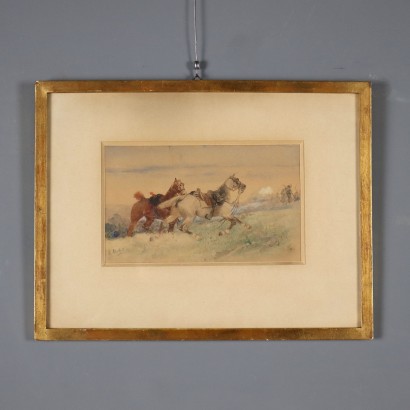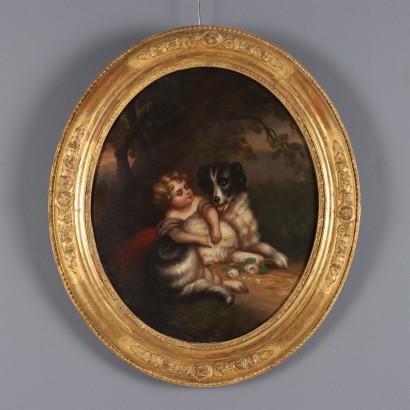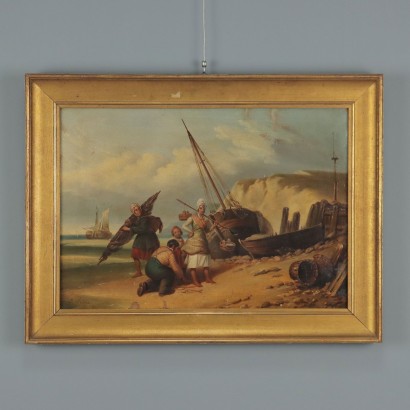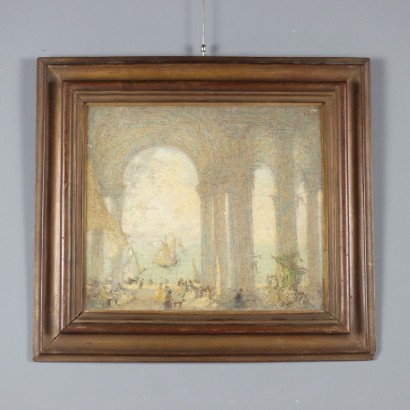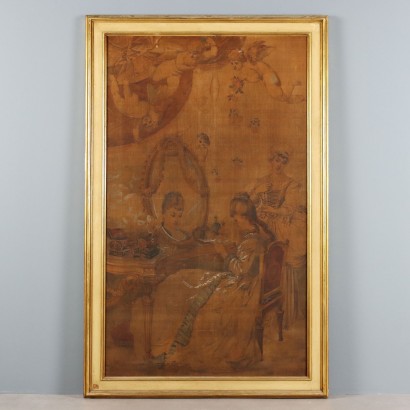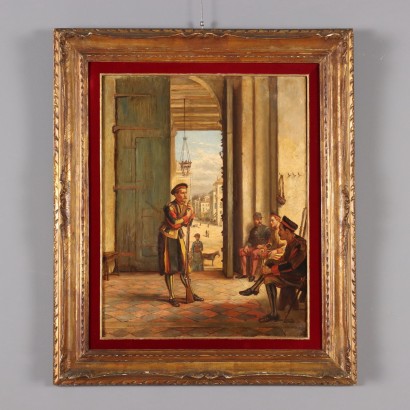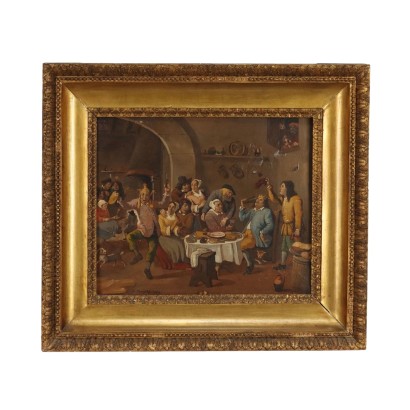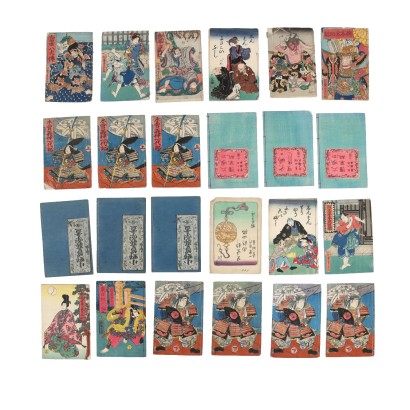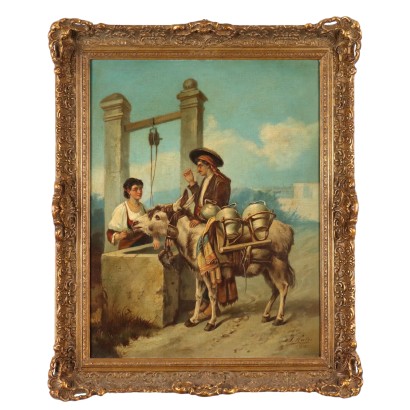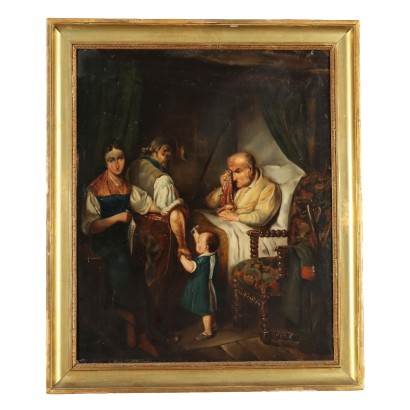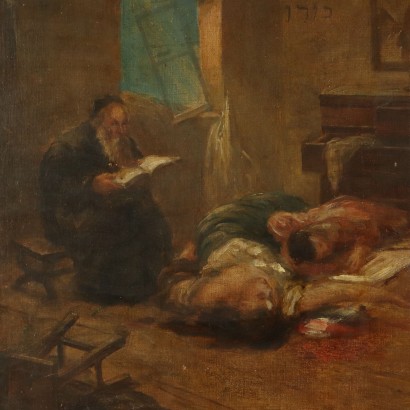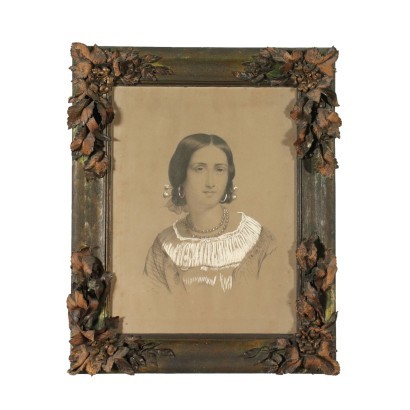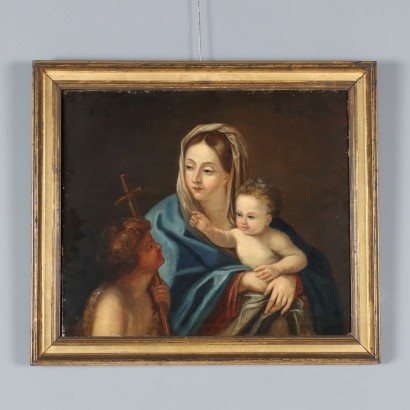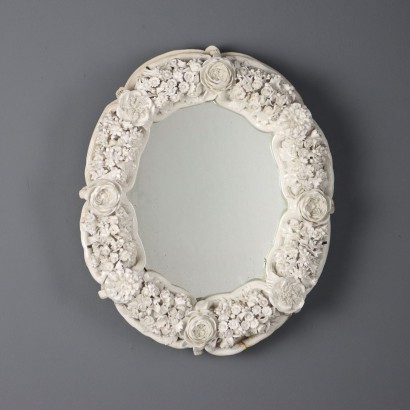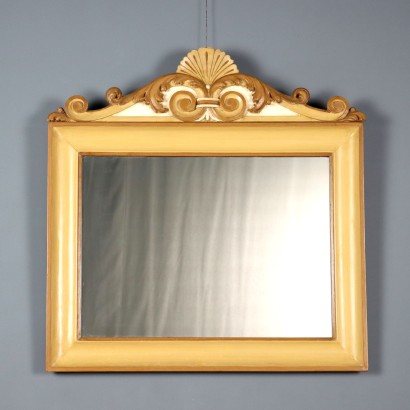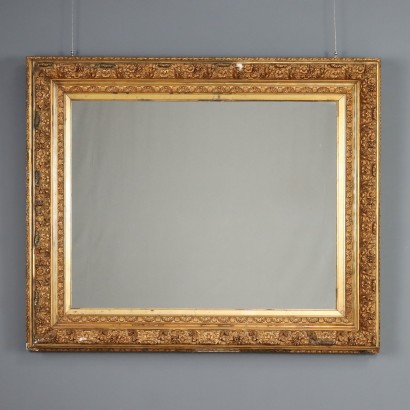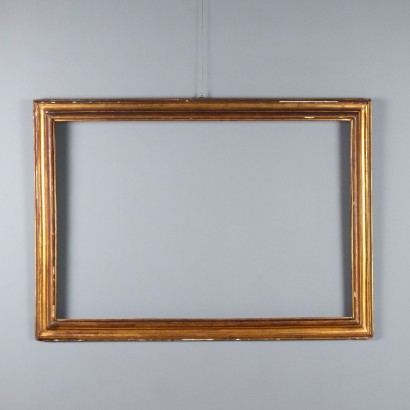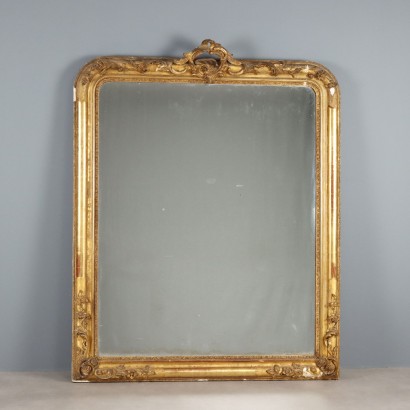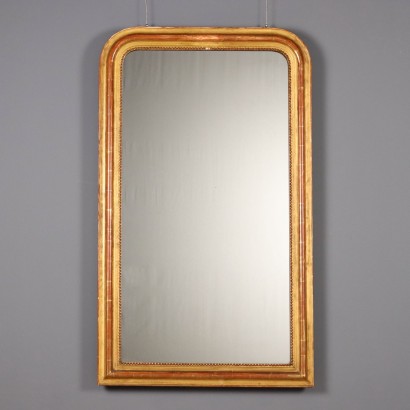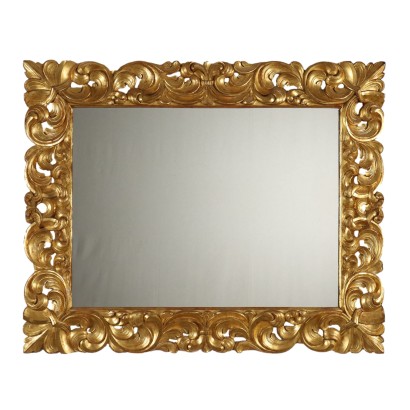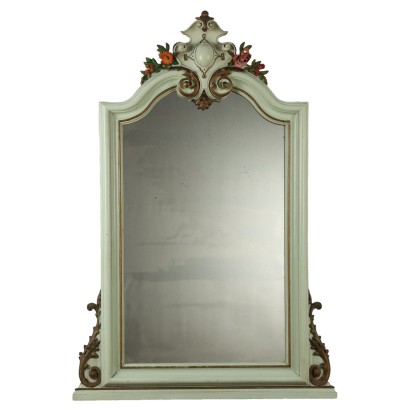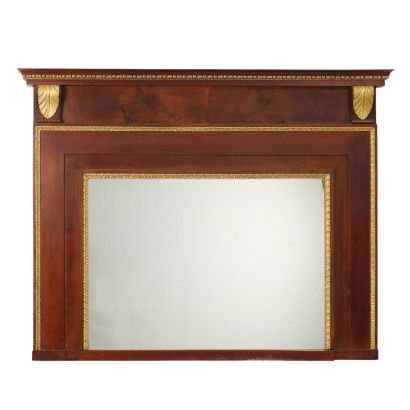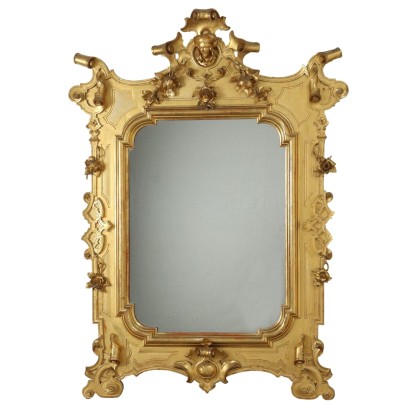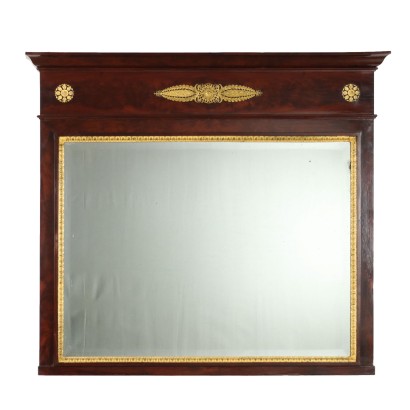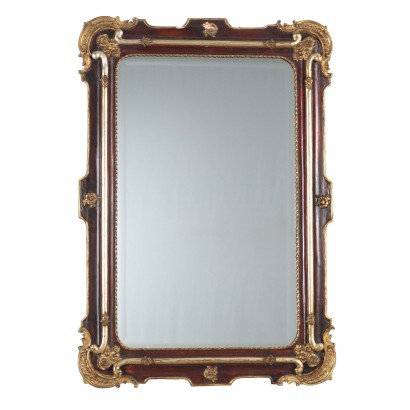Painting by Sebastiano De Albertis - Gathering
Features
Gathering
Artist: Sebastiano De Albertis (1828-1897)
Artwork title: Adunata
Age: 19th Century / 1801 - 1900
Subject: Genre Scenes
Artistic technique: Painting
Technical specification: Watercolor
Description : Adunata
Watercolor on paper. Signed lower left. De Albertis devoted himself to the military-patriotic genre, producing a rich repertoire of battles, replicated in various variations, which gradually became his specialty. Later, he turned to watercolor, but military subjects, often featuring horses, continued to dominate his work. This watercolor, in fact, features two saddled but unridered horses, responding to the trumpet call—the rallying call—sounded by the rider at the head of the squadron, visible on the right. The work is presented in a frame.
Product Condition:
The item is in good condition, with minor signs of wear. We try to present the item's actual condition as accurately as possible with the photos. If any details are unclear from the photos, the description will apply.
Frame Size (cm):
Height: 39
Width: 51
Depth: 1,5
Artwork dimensions (cm):
Height: 18
Width: 30
Additional Information
Artist: Sebastiano De Albertis (1828-1897)
Sebastiano De Albertis (Milano, 1828 - Milano, 1897) è stato un pittore italiano. Allievo dell'Accademia di Belle Arti di Brera, contemporaneamente frequenta gli studi del pittore di storia Roberto Focosi e di Domenico e Gerolamo Induno. La sua presenza alle Esposizioni di Belle Arti di Brera, con soggetti storici di impegno civile, è inizialmente discontinua a causa della partecipazione come volontario ai moti risorgimentali e alle guerre d'indipendenza. Fin dal 1855 si dedica al genere militare-patriottico con un ricco repertorio di battaglie, replicate in diverse varianti, che divengono progressivamente una sua specializzazione. Al suo rientro a Milano aderisce alla "Società della Confusion", con Tranquillo Cremona e Eleuterio Pagliano, in seguito istituzionalizzato come "Circolo degli Artisti" nel 1875. All'interno di questo clima culturale gravitante attorno al movimento della Scapigliatura, risalgono le prime prove all'acquerello e la produzione più disimpegnata dell'artista, caratterizzata da temi di costume e di vita contemporanea, tra cui le celebri corse di cavalli. In seguito alla prematura scomparsa dell'unico figlio, Enrico, nel 1874 si assiste al ritorno ad una pittura a carattere patriottico, di forte valenza civile. Insignito di numerosi riconoscimenti ufficiali, nel 1884 entra a far parte della Commissione per l'istituzione del Museo del Risorgimento di Milano.Age: 19th Century / 1801 - 1900
19th Century / 1801 - 1900Subject: Genre Scenes
Artistic technique: Painting
La pittura è l'arte che consiste nell'applicare dei pigmenti a un supporto come la carta, la tela, la seta, la ceramica, il legno, il vetro o un muro. Essendo i pigmenti essenzialmente solidi, è necessario utilizzare un legante, che li porti a uno stadio liquido, più fluido o più denso, e un collante, che permetta l'adesione duratura al supporto. Chi dipinge è detto pittore o pittrice. Il risultato è un'immagine che, a seconda delle intenzioni dell'autore, esprime la sua percezione del mondo o una libera associazione di forme o un qualsiasi altro significato, a seconda della sua creatività, del suo gusto estetico e di quello della società di cui fa parte.Technical specification: Watercolor
The watercolor or the watercolor is a painting technique that involves the use of pigments, finely ground and mixed with a binder, diluted in the water. The watercolor is a technique that is popular for its speed and for the easy portability of the materials, which have made it the technique of the excellence of those who paints and travelling in the open air. The support used for this technique is the paper that is preferably used with a high percentage of pure cotton as the long fiber of this plant do not change in contact with water. The paper that you buy commercially is measured in grams meter (weight of a sheet of 1 square meter). The preparation of the watercolor painting can be done according to three separate technical: 1) high level of overlapping, which, in addition to giving strength and tone to the same color, give the preparatory drawing, which is usually performed in light pencil, the necessary depth pictorial useful to the representation of the volumes, the shadows and the light; 2) painting wet-on-wet, i.e. the preparation of a coloured pigment to be made on the sheet of wet paper in the above so that the colors from spreading and flowing and giving you a look suffused the painting; 3)painting wet-on-dry, in which the pigment is laid after being dissolved with a sufficient amount of water to slide on the dry sheet.Other customers have searched:
Se sei un appassionato d'arte, non perderti i nostri approfondimenti sul Blog Arte Di Mano in Mano e su FineArt by Di Mano in Mano - Arte:
Leggi di più
Ecco alcuni tra i principali articoli:Vedute
Falsi nell'arte antica
Un messaggio di fiducia per ripartire
La potenza espressiva dell'arte figurativa etiope
Breve Storia del Collezionismo
Giorgio Upiglio, maestro dei libri d'artista
Matthias Withoos detto "Calzetta bianca"
San Rocco pensaci tu - Classic Monday
Dai un'occhiata alle nostre rubriche di divulgazione sull'arte:
Epoche
Lavorazioni e tecniche
Mostre ed Eventi
Protagonisti
Ti suggeriamo di guardare anche le presentazioni di questi dipinti ottocenteschi:
Tavoletta Porcellana Regina Luisa di Prussia, Berlino, Ultimo Quarto XIX secolo
Veduta di Frascati, Achille Etna Michallon, ambito di, terzo decennio XIX secolo, olio su tela
Venere Dormiente, Claudio Rinaldi, 1899
Sapevi che l'arte può essere anche un ottimo investimento (e non solo per grandi portafogli)?
L'Arte tra Collezionismo e Investimento
FineArt: Arte come investimento
Product availability
The product can be seen at Cambiago
Immediate availability
Ready for delivery within 2 working days from ordering the product.

